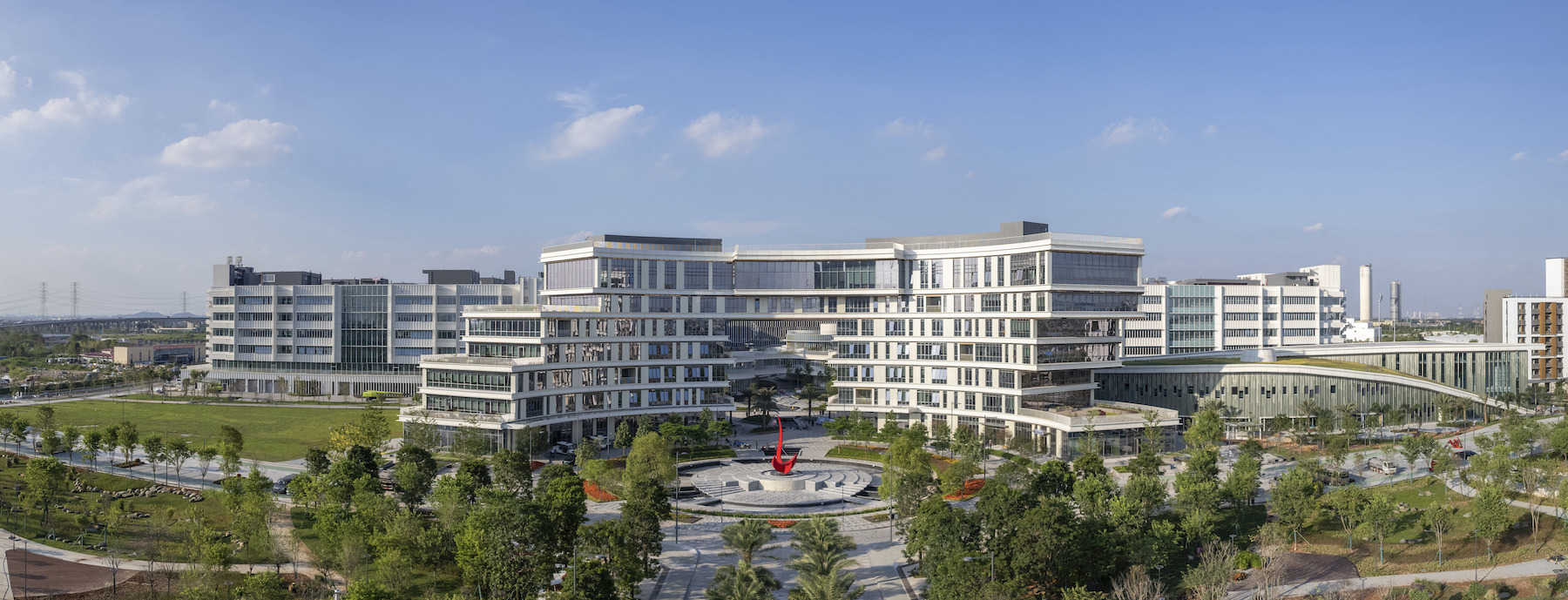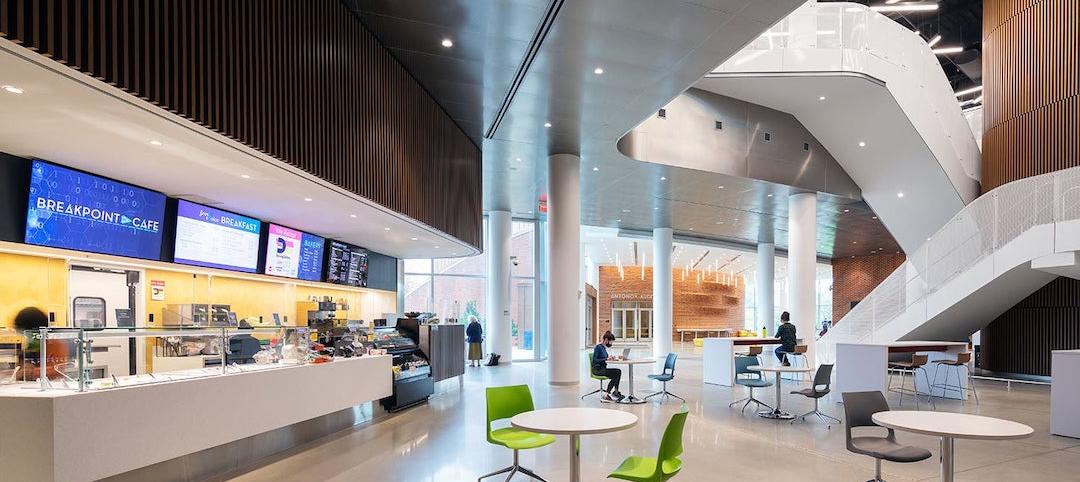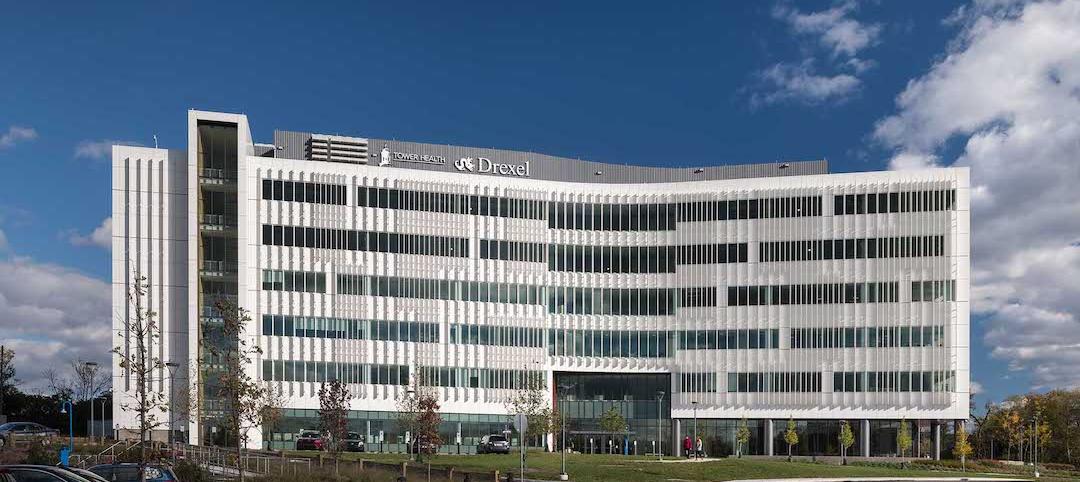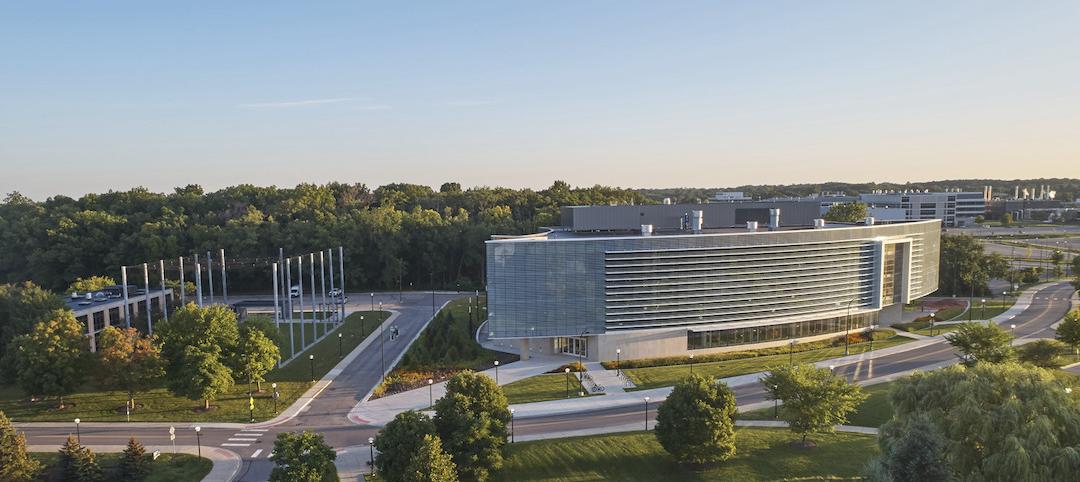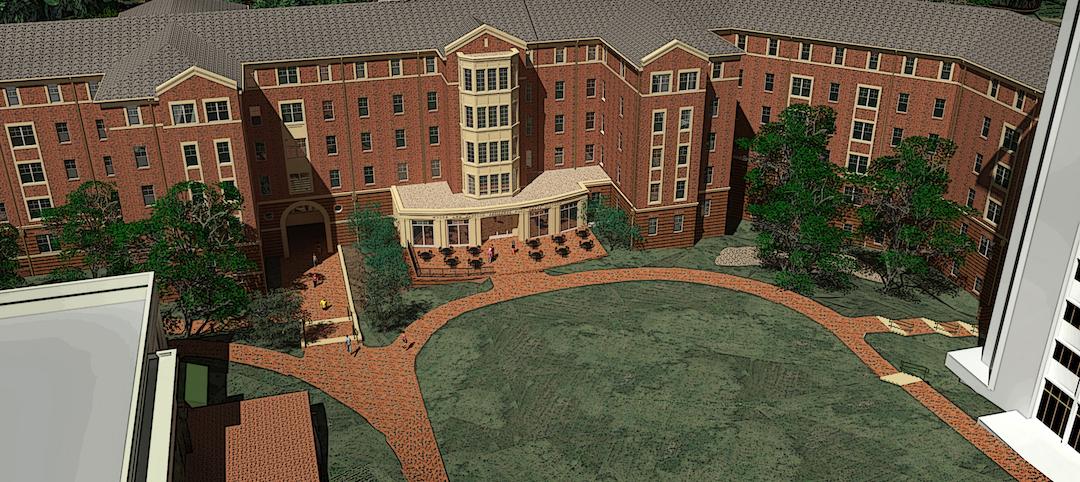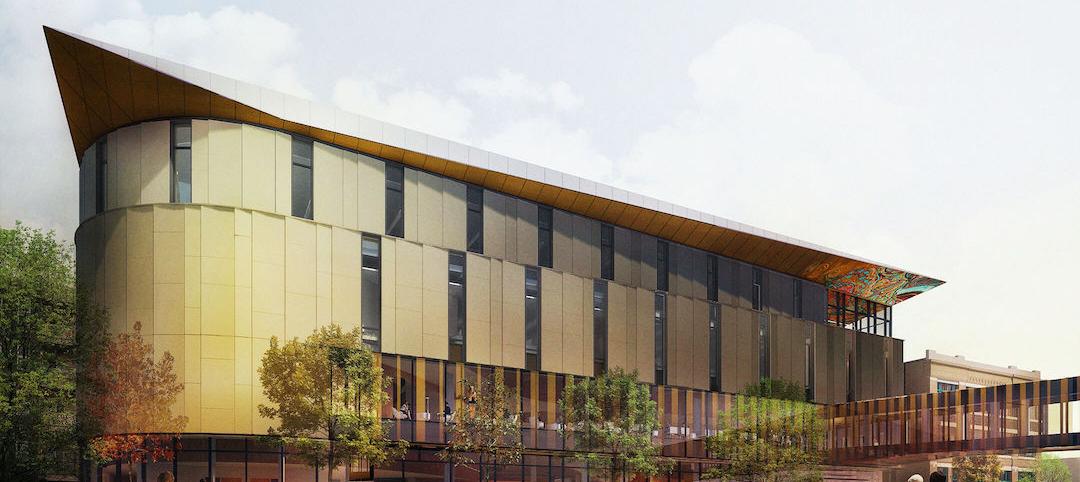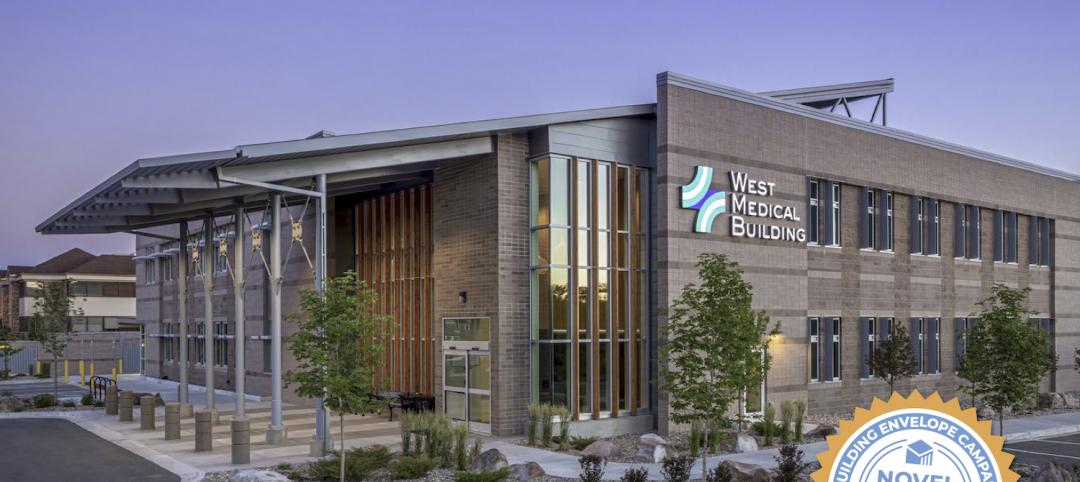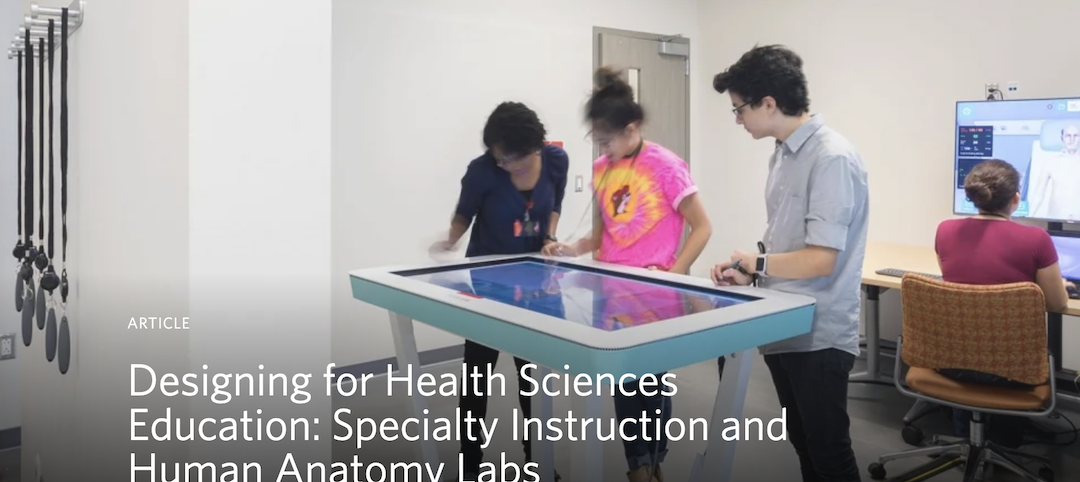In early September, the Hong Kong University of Science and Technology (HKUST) officially opened its new, KPF-designed campus in Nansha, Guangzhou (GZ). The carbon-neutral-ready campus was planned, designed, and built in three years’ time, with a project team comprising over 70 architects and planners across KPF offices in New York, Shanghai, Hong Kong, and Singapore.
The project’s first phase includes nearly 6 million square feet (about 550,000 square meters) for over 4,000 graduate students and 400 faculty members. It provides research facilities for subjects such as robotics and autonomous systems, smart manufacturing and transportation, microelectronics, and atmosphere and ocean systems.
Rather than following a traditional academic structure based on schools and disciplines, HKUST(GZ) centers around a project-based learning model that encourages multi-disciplinary interactions. The campus features eight research and lab buildings, connected by shaded arcades, and a full range of teaching spaces, including seminar classrooms, labs, large lecture halls, maker spaces, and collaborative workspaces.
“Landscape and building spaces come together to create an atmosphere where scientists will be energized and inspired to innovate,” James von Klemperer, KPF president, said in a statement.
From day one, HKUST(GZ) achieves a 54 percent reduction of carbon emissions, with a goal of reaching carbon neutrality before 2060. The plan’s environmental and resiliency measures have been designed for Guangzhou’s hot, humid climate and the rapidly urbanizing area’s flooding, seismic, and climate change risks.
When complete, the campus will accommodate more than 10,000 students and faculty. And it will integrate teaching and learning facilities with housing, neighborhood and campus retail, student life programs, administration, hotel, office and incubator spaces, and athletics facilities.
The HKUST(GZ) campus adds to KPF’s portfolio of research, innovation, and academic facilities around the world, including the CUNY Advanced Science Research Centers in New York City, the University of Michigan’s Detroit Center for Innovation, and NYU’s new Qiantan campus in Shanghai.
On the Building Team:
Owner: Hong Kong University of Science and Technology
Design architect: Kohn Pedersen Fox (KPF)
Architect of record: SCAD (Architectural Design & Research Institute of South China University of Technology Co.)
MEP engineer: ARUP
Structural engineer: ARUP
Landscape design: James Corner Field Operations
General contractor/construction manager: central hub: China Railway First Group Co. and China Railway Guangzhou Engineering Group Co.; other areas:
Canton One Construction Group Co. and Guangzhou Construction Engineering Co.
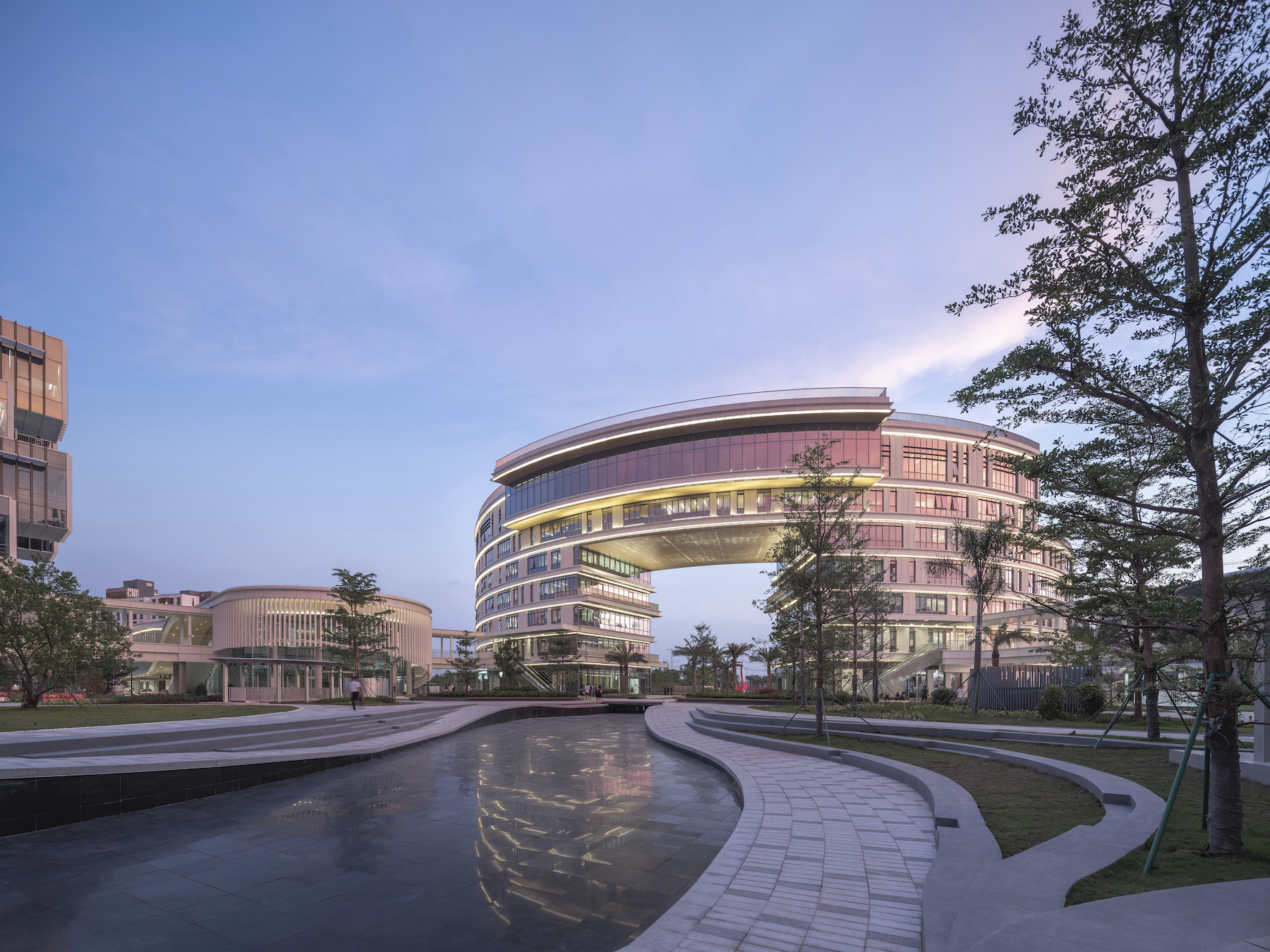
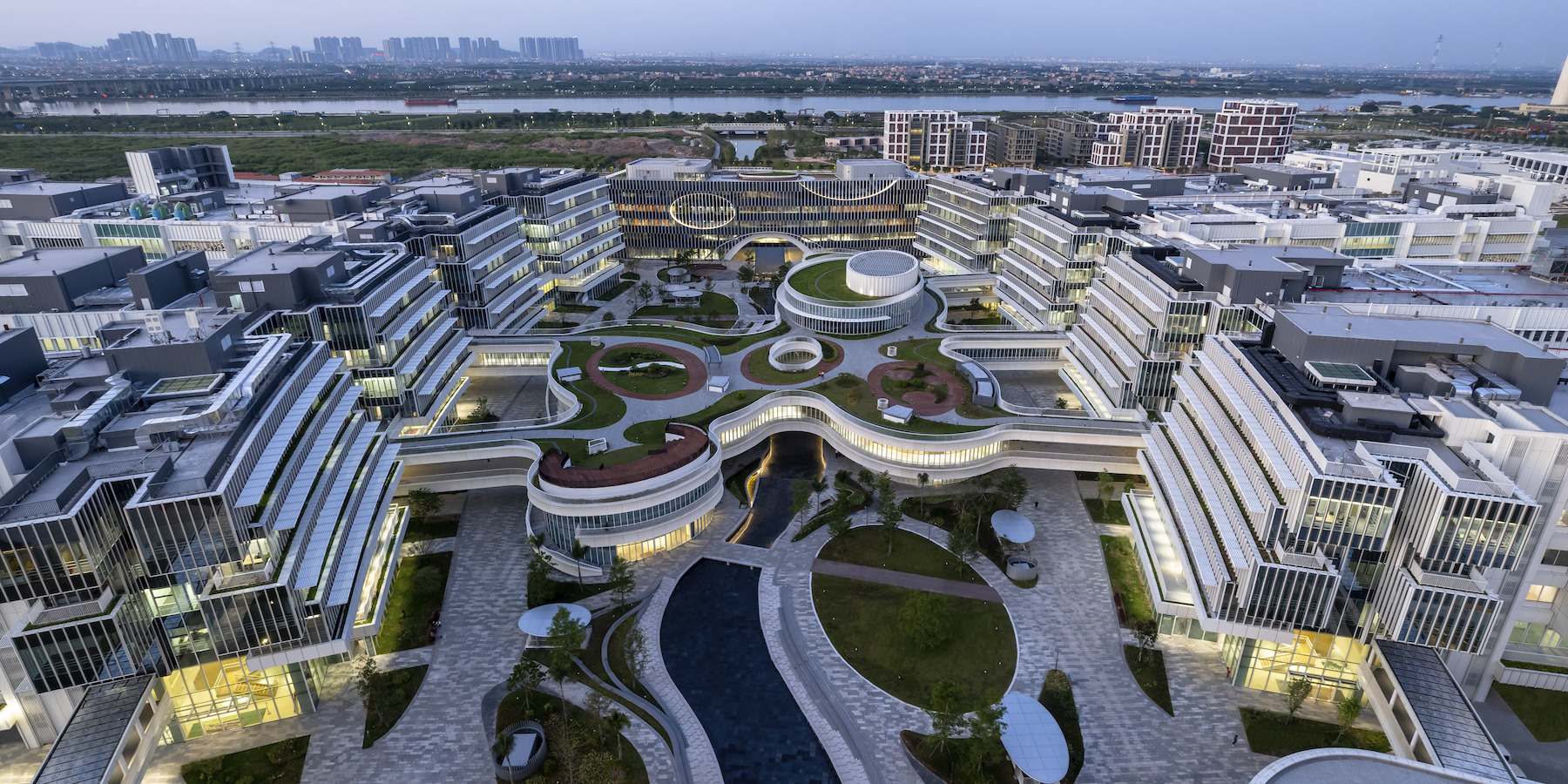
Related Stories
University Buildings | Jan 11, 2022
Designing for health sciences education: supporting student well-being
While student and faculty health and well-being should be a top priority in all spaces within educational facilities, this article will highlight some key considerations.
University Buildings | Jan 6, 2022
New Facility completes at Drexel University College of Medicine at Tower Health
SLAM designed the project.
University Buildings | Jan 4, 2022
Henning Larsen to design new university building in the Alps
The project will be Henning Larsen’s first in Austria.
University Buildings | Dec 8, 2021
The University of Michigan’s Ford Robotics Building completes
HED designed the project.
University Buildings | Nov 23, 2021
The University of North Carolina at Charlotte’s new residence hall begins construction
KWK Architects designed the project.
University Buildings | Nov 18, 2021
Pratt Institute Residence Hall completes, opens
Hanrahan Meyers Architects, in collaboration with Cannon Design, designed the project.
Designers / Specifiers / Landscape Architects | Nov 16, 2021
‘Desire paths’ and college campus design
If a campus is not as efficient as it could be, end users will use their feet to let designers know about it.
University Buildings | Nov 15, 2021
Red River College Polytechnic’s new Manitou a bi Bit daziigae opens
Diamond Schmitt and Number TEN Architectural Group designed the project.
Cladding and Facade Systems | Oct 26, 2021
14 projects recognized by DOE for high-performance building envelope design
The inaugural class of DOE’s Better Buildings Building Envelope Campaign includes a medical office building that uses hybrid vacuum-insulated glass and a net-zero concrete-and-timber community center.
University Buildings | Sep 28, 2021
Designing for health sciences education: Specialty instruction and human anatomy labs
It is a careful balance within any educational facility to provide both multidisciplinary, multiuse spaces and special-use spaces that serve particular functions.


